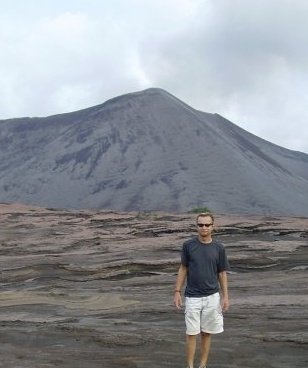I have a contest idea:
Given that:
- Doctor Who is wildly popular;
- Following each regeneration, the Doctor can end up looking like anyone;
- He can appear at any point in space and time;
 The BBC should sponsor a ‘Doctor You’ fanvid contest, in which the most implausibly plausible people play the Doctor. In the interests of actually being able to finish in a reasonable amount of time, contestants should create only the pre-credit opening scene.
The BBC should sponsor a ‘Doctor You’ fanvid contest, in which the most implausibly plausible people play the Doctor. In the interests of actually being able to finish in a reasonable amount of time, contestants should create only the pre-credit opening scene.
This whole idea is inspired by the realisation that Matt Smith looks TOO MUCH like the Doctor. He’s not entirely credible because he’s too plausible.
See, David Tennant and Christopher Eccleston are really not unusual-looking. Their only visible eccentricity is in their clothing, and even that isn’t something that would leap out if they walked past you on the High Street.
And that’s why we experience delight when we see, for example, Tennant yelling, ‘Allons-y!’ and leaping out of a spaceship in a suicidal suborbital descent, down through a Victorian skylight, just in time to send the Time Lords back into oblivion.
One look at Matt Smith’s features, though, and we’re more inclined to say, ‘Oh well, he would do that, wouldn’t he?’ Worse, we’re left slightly mystified when he demonstrates normal human emotions, which is a good deal of the time.
So let’s play with the assumption that Doctor could look like anybody. That there’s really no reason he wasn’t more than slightly Sheldon Cooper-esque back when he was in his 200s. That he might be a corpulent middle-aged middle-brow more likely to yell ‘Trot!’ than ‘Run!’.
None of these details really matter. Not nearly so much as the fact that this is a (mostly) human character wandering alone in the Cosmos with the fate of civilizations resting on his –or her– shoulders. That’s character enough, don’t you think?
Anyway, everyone should make an entry. Here’s mine….


 The thematic heart of
The thematic heart of